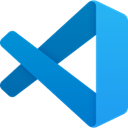Top Embitz Alternatives: Find Your Ideal C/C++ IDE for Embedded Development
Embitz has long been a go-to free C/C++ IDE for embedded software development, lauded for its extensibility, configurability, and broad debug probe compatibility. With integrated STlink GDB server support for Live Data and Semihosting, it offers a consistent experience across various targets like ARM, MSP430, and PIC. However, for diverse reasons—perhaps a need for different features, platform support, or a fresh interface—developers often seek alternatives. This guide explores the best Embitz alternative options available today.
Best Embitz Alternatives
Whether you're looking for a more lightweight editor, a full-fledged IDE with robust language support, or something tailored for specific development workflows, these alternatives offer compelling features that might better suit your embedded software development needs than Embitz.

Visual Studio Code
Visual Studio Code is a free and open-source editor available on Mac, Windows, Linux, and Chrome OS. It's an excellent Embitz alternative because it combines a streamlined UI with rich code assistance and an integrated debugging experience without being a full IDE. Its extensibility via plugins for C, C++, C#, Python, and more, alongside features like an integrated terminal, autocompletion, Intellisense, and robust Git support, makes it highly adaptable for embedded development.

Vim
Vim, or "Vi IMproved," is a highly advanced, free and open-source text editor known for its lightweight nature and extensive customizability. Available across Mac, Windows, Linux, BSD, and OpenSolaris, Vim is a powerful Embitz alternative for developers who prefer a keyboard-focused workflow. Its huge amount of contributed content, syntax highlighting, word completion, and plugin extensibility make it a formidable tool for intricate coding tasks, including embedded C/C++ development, despite its steep learning curve.

Eclipse
Eclipse is a free and open-source, highly extensible development platform available on Mac, Windows, and Linux. As an IDE, it offers a robust alternative to Embitz, especially for Java developers, but its C/C++ Development Toolkit (CDT) provides excellent support for embedded C/C++ projects. Key features include powerful debugging, refactoring, autocompletion, and a vast ecosystem of plugins, making it suitable for complex embedded systems development.

Microsoft Visual Studio
Microsoft Visual Studio is a comprehensive IDE from Microsoft, available as a free personal edition on Mac, Windows, and Web, with strong .NET Framework support. It stands as a powerful Embitz alternative, especially for developers working within the Microsoft ecosystem or needing extensive C/C++ support. Features like Intellisense, an embedded debugger, compiler, and integrated form designer make it a feature-rich environment for a wide range of software and embedded applications.

Geany
Geany is a small, lightweight, free, and open-source Integrated Development Environment available on Mac, Windows, Linux, BSD, and PortableApps.com. As an Embitz alternative, it excels in providing a fast and efficient IDE with minimal dependencies, ideal for resource-constrained environments or developers who prefer a nimble tool. Its features include excellent syntax highlighting, built-in terminal, code navigation, and portability, making it a pragmatic choice for various coding tasks, including embedded systems.

Apache NetBeans
Apache NetBeans is a free and open-source IDE available on Mac, Windows, Linux, and BSD. While often associated with Java development, it provides robust support for C/C++ and other languages, making it a viable Embitz alternative. Key features include an embedded debugger, code completion, refactoring tools, built-in terminal, and excellent GIT support, providing a comprehensive environment for professional desktop, enterprise, and embedded applications.

gedit
gedit is the official text editor of the GNOME desktop environment, available as a free and open-source tool on Mac, Windows, Linux, Chrome OS, and BSD. For those seeking a minimalist yet effective Embitz alternative, gedit offers syntax highlighting and extensive plugin support, making it suitable for programming in various languages. Its lightweight nature and autocompletion features can be beneficial for quick edits and smaller embedded projects.

IntelliJ IDEA
IntelliJ IDEA, a freemium and open-source Java IDE by JetBrains, is available on Mac, Windows, and Linux. While primarily a Java IDE, its extensible nature allows for robust C/C++ support through plugins, making it a sophisticated Embitz alternative. Its design focuses on programmer productivity with features like intelligent code completion, static analysis, integrated terminal, and strong version control integration, benefiting complex embedded development.

PyCharm
PyCharm is a cross-platform Python and Django IDE, available as freemium and open-source on Mac, Windows, and Linux. While specialized in Python, its comprehensive IDE features, including code completion, formatting, embedded debugger, and strong Git/GitHub integration, can make it a consideration for embedded projects that involve Python scripting or toolchains. As an Embitz alternative, it offers a different approach, particularly if your workflow integrates heavily with Python.

GNU Emacs
GNU Emacs is a free and open-source, highly extensible, and customizable text editor available across Mac, Windows, Linux, and BSD. It serves as a powerful Embitz alternative for those who appreciate its unique Emacs Lisp scripting language for unparalleled customization. With features like syntax highlighting, cross-platform compatibility, an integrated IDE for all languages, and a vast ecosystem of extensions, Emacs can be tailored to meet virtually any embedded development need.
Choosing the right Embitz alternative ultimately depends on your specific development workflow, preferred platform, and the types of embedded projects you undertake. Each option listed provides a unique set of strengths, from lightweight text editing to full-fledged integrated development environments, ensuring you can find the perfect fit for your embedded C/C++ development journey.